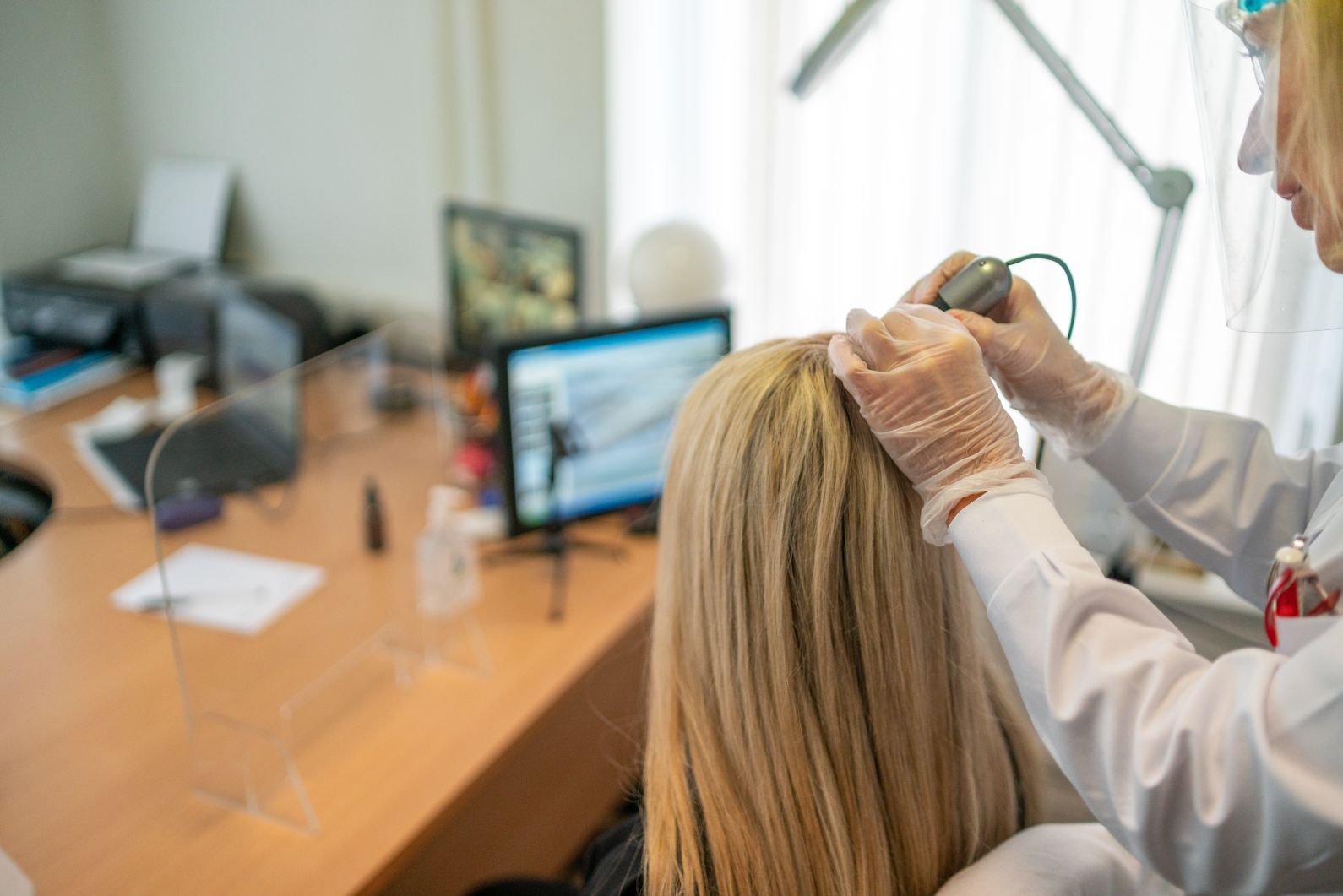Hair loss during pregnancy is not very common. The truth is that the locks of most pregnant women are in an excellent state. Due to the increase in oestrogen, shedding is minimal which results in thicker and even lustrous hair.
But…
There are a few who may experience the reverse – excessively shed hair. As mentioned in our previous blog, telogen effluvium is the most common reason behind alopecia during pregnancy. This hair loss condition can be due to hormonal changes, medical conditions, nutritional deficiencies and even stress.
Fortunately, telogen effluvium is a reversible hair loss condition. In most cases, the excessive shedding stops after 3 to 6 months or when the trigger is eliminated. However, don’t expect to regain what you’ve lost instantly. It is going to take some time before you see noticeable changes in your hair volume.
Other Causes of Hair Loss During Pregnancy
Excessive hair shedding in pregnant women can be due to other hair loss conditions such as androgenic alopecia, traction alopecia and alopecia areata.
Androgenetic Alopecia
This condition is also popularly called female-pattern hair loss. It is the most common cause of hair loss in women. It is believed to be hereditary and its effects become more apparent during or after menopause. However, its onset can happen as early as puberty.
The hair loss happens slowly which is why it is rarely noticed during the early stages. Fortunately, unlike men, women do not have to worry about balding. However, the reduction in volume can be significant – the part becomes wider and hair becomes sparser.
Unlike telogen effluvium, this is not a reversible condition. There is no cure for androgenetic alopecia, but there are treatments that can stop it from happening too quickly. There are also medications which can promote hair growth.
Traction Alopecia
It is possible that the hair loss you are experiencing has nothing to do with your pregnancy or with your genes. The culprit may be how you’re styling your hair which is the case with traction alopecia.
Tight ponytails, braids and buns – these pull on the hair, especially if you frequently sport them. As a result, strands get broken or gets pulled out. Aside from tight hairstyles, incessant use of chemicals and heat-emitting hair tools like blowers can also cause traction alopecia.
Some of the symptoms include broken hairs or small bald spots along the sides or front of the scalp. When addressed early, you can regrow back your hair. However, if you fail to stop tying your hair too tight, the damage can become permanent. This is because, over time, the follicles become damaged and stop producing hair.
Alopecia Areata
Alopecia areata is unlike the other conditions we’ve previously talked about wherein the hair loss is diffused and gradual. In this autoimmune disorder, you are going to lose a significant amount of hair in a short span of time. One of its most common symptoms is the appearance of round bald patches.
This condition is still not fully understood, specifically why it happens. Currently, there is no cure for alopecia areata. The treatments available are primarily to promote hair growth.
Furthermore, this disorder is cyclical, meaning the hair growth & hair loss can repeatedly happen. It is also very unpredictable in that there are no signs as to when it is going to recur.
How to Deal with Hair Loss During Pregnancy
It is best to inform your doctor or consult a qualified specialist like a dermatologist if you suspect that you are suffering from hair loss. This is the first step towards determining if you are really suffering from alopecia.
The specialist is going to examine your scalp and check for broken hairs or bald spots. Tests are also going to be ordered to find out if an underlying medical condition is causing it like iron deficiency and thyroid problems which are common in pregnant women.
Typically, pregnancy-safe medications or supplements may be prescribed to address underlying conditions, i.e. supplements if you have an iron deficiency. But this is the farthest it can go as approved medications for hair growth (those used in androgenic alopecia and alopecia areata) are not recommended for pregnant women.
Here’s the thing:
Alopecia during pregnancy resolves itself on its own most of the time. So, there’s no need to fret. More importantly, you do not have to try so-called hair loss “cures” – be it medicine, topical solution or shampoo. Unless it is recommended by a qualified specialist, do not use any of these products as it can endanger you and your child.
What should you do then?
Just follow your doctor’s order. Also, don’t worry too much. Keep in mind, stress can trigger or exacerbate your hair loss. Try your best to relax – this is not just good for your hair health but also for you and your baby.
Are you experiencing hair loss during your pregnancy? Schedule a consultation with our trusted hair & scalp specialist to learn about pregnancy-safe hair care practices Call us today on +353 (0)1 6793618 and schedule an appointment with our specialist!



